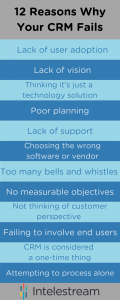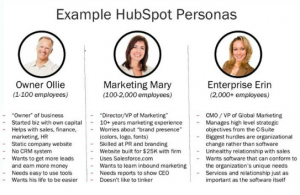Many B2B wholesalers and manufacturers inaccurately assume that social media is mainly for companies that need to engage directly with end consumers, but it definitely has a place in B2B marketing as well. According to Harvard Business Review, “useful content distributed through digital channels can be as effective in provoking a dialogue as face-to-face selling.” This is true whether the customer is an individual or part of a company.
Social media provides the platform to distribute content your customers care about and enhance business relationships that matter. So, how can B2B social media work for wholesale distributors and manufacturers and how can it benefit your business?
B2C vs. B2B Social Media
Social media as a marketing strategy is an obvious fit in the B2C world – it can help to increase visibility and establish or enhance relationships between companies and their individual customers. In B2B, it can also do this; it’s important to remember that the companies that your business sells to are made up of the individuals who work there. These individuals are the ones that make the decisions and ultimately determine what the relationship between your firm and theirs will look like.
Of course, not everything is the same when it comes to B2B social media. Your reasons for using social media in a B2B environment might differ slightly, and the methods you use might also differ.
In the B2C world, there are a multitude of social media platforms that companies can use to build relationships with online customers: Facebook, Twitter, Instagram, Pinterest, Tumblr, to name but a few. The most important factor to consider is who your typical user is, and what platforms they’re using.
The same goes for B2B. The most appropriate social media channels in a B2B environment are going to be the ones your customers and potential customers use most, They typically are the more business-oriented channels, like LinkedIn, Facebook and Twitter.
Why Your B2B Company Should Use Social Media
But why would a B2B company want to use social media in the first place? There are three main reasons:
1) It’s where the customers are. A recent study found that 71% of adults that use the Internet are on Facebook, and 52% of online adults now use two or more social media sites. It’s important to keep your company top of mind by communicating with your customers where and how they prefer to be reached.
2) It’s the perfect place to share content. Not only does social media offer the ability to share content with those who’ve already liked or followed your page, that content can be shared again with others, thus extending your reach. And for your existing customer relationships, it’s a great way to keep them informed about new or improved products, as well as to share a behind-the-scenes peek at what makes your company special. Content shared will depend on your industry to some degree, but can include blog posts, product announcements, case studies and other content that will be both useful and informative to your customers.
3) Improve your search results. Links to your company website from social media site are inbound links, which are an important component of your search engine rankings. Buyers will do their research to gather information before purchasing a product, whether it’s a B2B or B2C purchase. In fact, 94% of B2B buyers indicate that this is an important step in their decision-making.
The upshot of this is that even for B2B companies, social media is an important way to extend your reach and develop new relationships with customers, as well as to solidify existing relationships.
How Can Businesses Use B2B Social Media?
B2B companies can use social media in a multitude of ways. Building awareness around new products and campaigns is a slam-dunk. But it’s important to remember that social media is a two-way street that shouldn’t be just about putting the word out. Rather, it should be about truly engaging your customers and building relationships.
How can we do this with social media? The first step is to ensure that you have a robust presence on the networks where you plan to focus, whether it’s LinkedIn, Facebook, or Twitter – or all three.
Facebook for B2B
On Facebook, setting up a company page is the first step to engaging with your users. Facebook company pages allow you to promote blog posts, press releases and share other content that your customers, or those who fit the profile of your potential customers might be interested in.
To expand your reach beyond those who’ve already liked your page, you can pay to promote posts or run ads that target users who have visited either your website, or sites similar to yours, within a recent time period. Once users find you on Facebook, you can use other tools to engage them, such as sharing contests or promotions on your page.
LinkedIn for B2B
On LinkedIn, there are also a number of ways to engage with users. For starters, you can publish blog posts and other news from your company on your company page. But you can expand your reach even further by publishing on the LinkedIn Pulse network.
But what should you publish? Any news related to your company, such as press releases and product announcements is fair game for your page. Blog posts that are useful and relevant to your audience and potential customers are a great option for Pulse. Getting involved in Discussion Groups related to your industry is another way to gain new followers and begin establishing new relationships on LinkedIn.
Twitter for B2B
Twitter is a short-form publishing format with a very high volume of users – some have likened it to a firehose. Because of these factors, it can be difficult to convey messages in-depth. Yet, it has some other advantages that Facebook and LinkedIn do not have. One is, it is easier to gain new followers on Twitter than it is on other networks, simply by following other users. Another advantage is that you can post a higher volume of content. Engaging with other users is also fairly simple using retweets and hashtags. This is a great tool for expanding your reach.
It’s All About Relationships
The most important thing to keep in mind with B2B social media is that it is about relationships. Just like in the offline world, relationships take time, so it takes time to see the results from your social media efforts. Relationships also go both ways, so you will need to be very focused on ensuring that the content you provide is relevant and useful to your customers.
That said, with a strategy to provide consistent, useful content that your customers want, social media can be a great tool for B2B manufacturers and wholesale distribution companies in any industry.
Is your company using social media? How? We’d love to hear more about your results in the comments.
Digital & Social Articles on Business 2 Community(306)
Report Post





